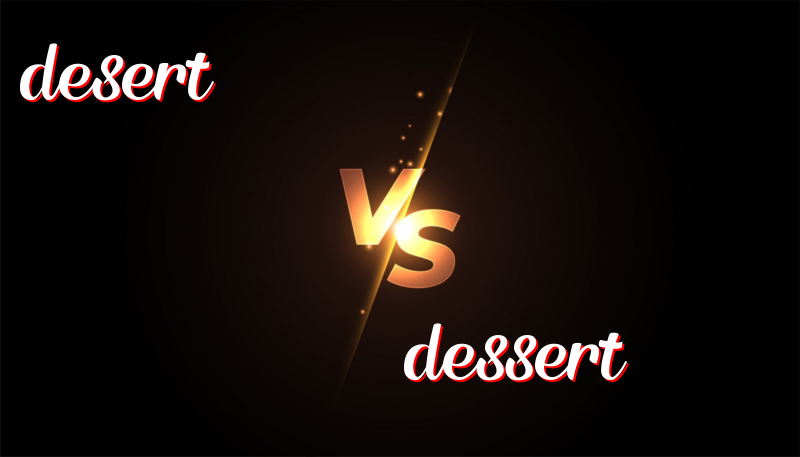Desert vs. Dessert: Don’t Get Lost in the Sweet Sands!
The Difference Between “Desert” and “Dessert”
“Desert” and “dessert” may sound a bit the same, but they are very different. Let’s look at what they mean, where they come from, and how to tell them apart.
History of the Words
The word “desert” comes from Latin “desertum,” which means “abandoned” or “wilderness.” It first entered the English language in the 12th century.
The word “dessert” comes from the French “desservir,” meaning “to clear the table.” This word started to be used in English in the 16th century.
How to Use Them
“Desert” can be a noun or a verb. As a noun, it means a very dry area with few plants, like the Sahara. As a verb, it means to leave someone alone.
“Dessert” is a noun. It is the sweet food we eat after the main meal, like cake or ice cream.
Trick to Remember the Difference
Here’s a simple trick: “Dessert” has two S’s because you always want seconds of dessert! “Desert” has just one S, like how it is more simple (but hot!).
Example Sentences for “Desert”
- The camel walked slowly across the desert.
- Many cacti grow in the desert.
- The desert is very hot during the day but cold at night.
- They saw a mirage in the desert.
- The soldier did not desert his post.
Example Sentences for “Dessert”
- We ate ice cream for dessert.
- She baked a chocolate cake for dessert.
- Fruit salad is a healthy dessert option.
- Would you like pie or pudding for dessert?
- The restaurant has a delicious dessert menu.
Summary
Remember, a “desert” is a hot, dry place or means to leave someone, and usually has one “s”. A “dessert” is a sweet treat we enjoy after meals, and it has two “s” because we often want more!

Leave a Reply
You must be logged in to post a comment.